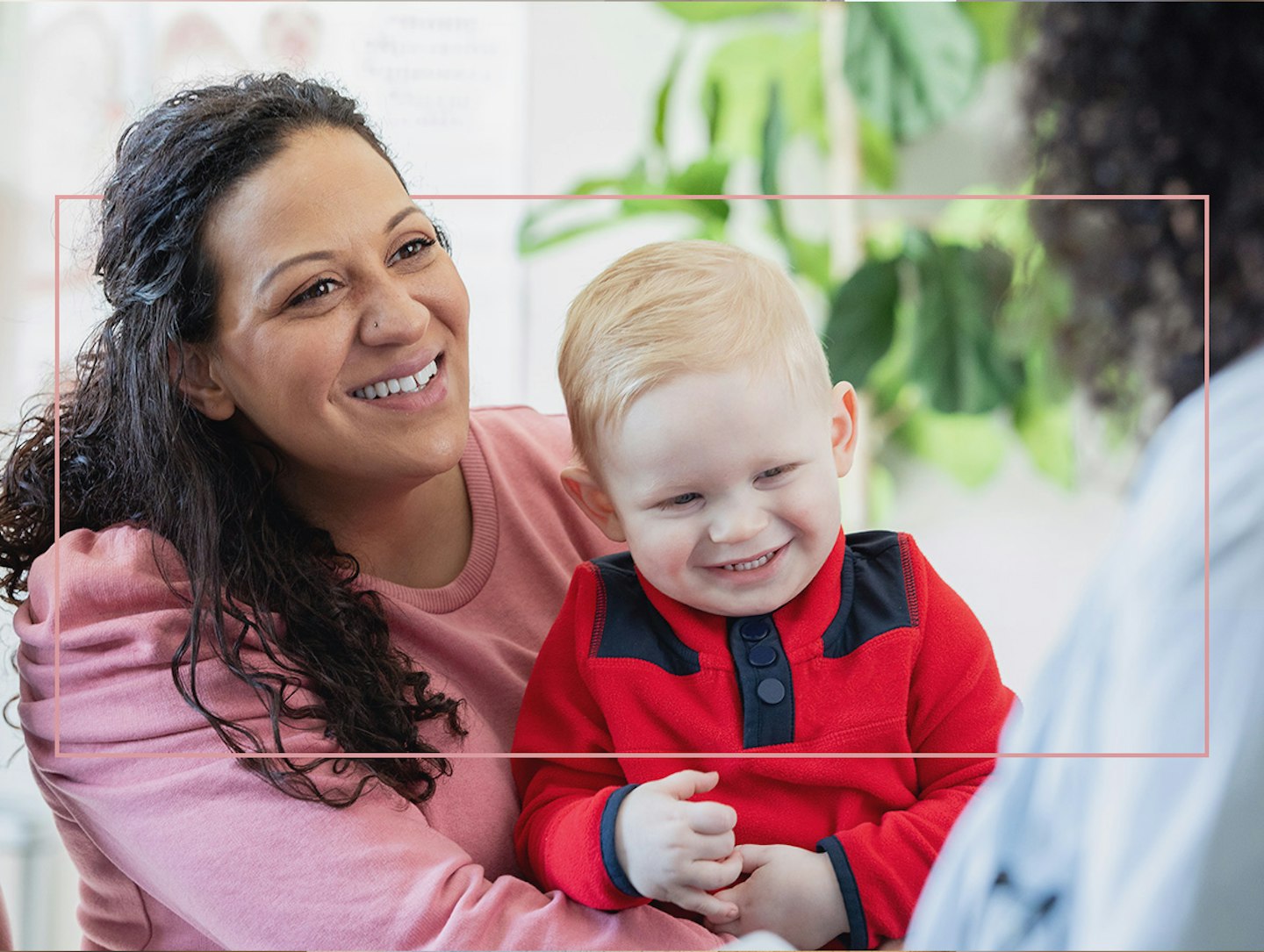Following several outbreaks of measles in England, parents are being encouraged to protect their children from serious infections, including measles and whooping cough, by making sure their child receives their routine childhood vaccinations.
To help you learn more about the vaccines every child needs and the best ways to prepare your child for their appointment, we spoke to Dr Radha for her advice and guidance for parents. Read the Q&A with Dr Radha, or scroll down to watch the full video.
What are routine childhood vaccinations?
Vaccinations are the best way to protect little ones from becoming seriously unwell from preventable diseases, such as measles, polio and whooping cough.
Giving your child these routine childhood vaccines when they are due is one of the most important things you can do to protect them and their health. Catching these diseases can cause serious illness, hospitalisation, complications and lifelong disabilities and, sometimes, can sadly be fatal.
At what age does my child need their vaccinations?
There are a number of routine childhood vaccinations that are recommended by the NHS. The first vaccines are given at 8 weeks old, then at 12 weeks, 16 weeks, 1 year and 3 years and 4 months; they are usually given at a GP practice. In teenage years, children aged 12-13 years old and then 14 years old are usually given a booster and their HPV vaccine in school. To find out more about when to have vaccines, and whether you need to book an appointment for your child, visit www.nhs.uk/childhoodvaccinations.
How do I get an appointment for my child to be vaccinated?
You will usually be contacted by letter, text, phone call or email by your GP practice when your child is due for their routine vaccination. If you know your child is due for a vaccination you can contact your GP practice to book the appointment rather than waiting for them to contact you. If you are unsure if your child has missed any vaccinations, you can check their red book or speak to their GP practice to check.
What should I do if I’ve missed my child’s routine vaccination?
It is important that vaccines are given on time so they can give the best protection but, if your child has missed a vaccine, it may not be too late. You can contact their GP practice to get their advice and catch up on the recommended vaccines. They are not protected if they are not vaccinated.

Why is it important for my child to catch up on any missed vaccinations?
Cases of childhood infections such as measles and whooping cough are rising and if your child isn’t vaccinated they are not protected against catching these infections. Childhood infections can cause serious illness, admission to hospital and complications that can cause lifelong disabilities. Research suggests that childhood vaccinations prevent more than 5,000 deaths and over 100,000 hospital admissions each year in England. Many people may think that these diseases are a thing of the past, but that is only because vaccinations have been so successful. If vaccine rates fall then we will see more cases.
What’s in the vaccine and how do they work?
Most vaccines contain a small amount of the bacteria, virus or toxin that has been weakened or destroyed in a laboratory first. They work by teaching our immune systems how to create things called antibodies, which protect us from diseases. It is much safer for your child to be protected by being vaccinated rather than by catching the disease.
Are there any side-effects to vaccines?
All childhood vaccinations offered by the NHS have been used in millions of children worldwide and have an excellent safety record. Most side effects that your child may experience tend to be mild and do not last for long. Some of the most common side effects might be feeling tired, a temperature, or the area where the needle goes in looking a bit red, swollen or a bit sore. You can speak to your practice nurse or GP if you are worried about your child having a vaccine or want to find out more about vaccinations. Research from around the world shows that immunisation is the safest way to protect our children’s health.
How should I prepare for my child’s vaccinations?
When you receive your invitation for your child to have their vaccinations, it is important you make an appointment as soon as possible to start your child’s protection against these diseases. If you have any questions around the vaccinations your nurse or doctor will be able to answer these at your appointment. Young babies are usually unaware of what is happening, but it may be a good idea to discuss vaccination with preschool children. You might be able to act out a pretend injection on their favourite teddy bear or toy or find a video with their favourite characters that talks about vaccination so they feel prepared and know what will happen. Take your personal child health record book (sometimes referred to as the ‘red book’) with you to the appointment. If you can, dress your baby in clothes that are easy to remove – babies under 12 months have injections in the thigh. Dress toddlers and older children in loose or short sleeves so the area where they’ll be injected (the upper arm) is more easily accessible. It can help for them to sit on your lap or hold your hand for reassurance.

What should I do after they’ve had their vaccination?
Some children and babies can get a little upset when they are having the injection. Most are easily settled with a cuddle and some reassurance. A favourite snack or toy can also help distract their attention. There may be some redness or soreness where the needle was injected but this should go away on its own within 2-3 days. Some children may feel irritable after the injection and can develop a high temperature afterwards, which mimics the virus. Over-the-counter pain relief usually helps this, so it’s best to make sure you have some in the house before their appointment. Your GP, practice nurse or pharmacy will be able to give you advice about how to manage any side effects.
Should my child rest after their vaccinations?
You should carry on as normal and manage any side effects as recommended. If your child is not able to take part in their normal daily activities, or you’re concerned, contact their GP practice or 111.
My child is unwell, can we still have their vaccinations done?
If they have a minor illness without a temperature, such as a cold, it is usually OK for them to have their vaccination. Contact your GP practice to ask for advice and discuss your child’s health if you think they are too unwell. They will advise if the appointment needs to be rearranged for when they are feeling better.
If they’re not vaccinated, they’re not protected. Book with their GP practice or find out more about routine childhood vaccinations here: https://www.nhs.uk/conditions/vaccinations/
About the expert
Dr Radha qualified as a doctor in 2003 and continues to practice as a GP within the NHS. She studied medicine at Cambridge University and Imperial College London gaining First Class Honours in her MA and MBBS degrees.
To find out all you need to know about Childhood Vaccinations, read our article here.
**
Want to know more about Whooping Cough? Click here to read the full article.**
